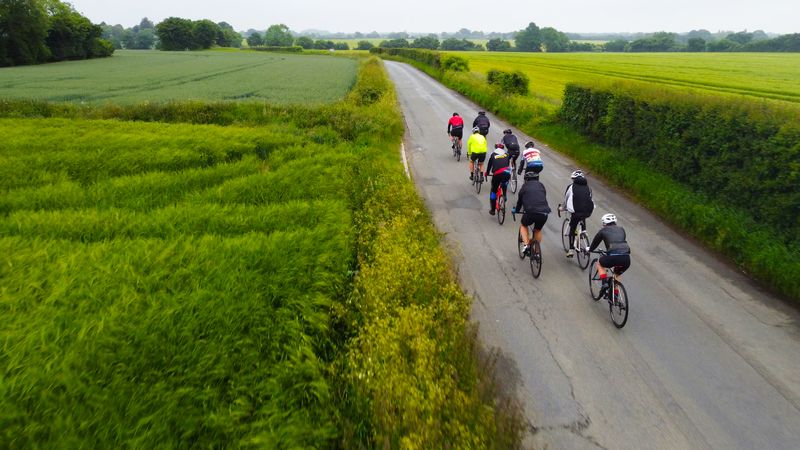Table of Contents
Setback for Indigenous Rights in Australia
Government Should Look to First Nations Communities for Next Steps
Daniela Gavshon
Australia Director
@dgavshon
October 14, 2023 | Australia’s referendum to enshrine a First Nations voice in the country’s constitution was unsuccessful. But the spotlight remains on the Australian government to ensure First Nations people’s rights to self-determination, and full and effective participation are properly realized.
Establishing an Indigenous Voice to parliament was put to a vote on October 14, 2023, as constitutional amendments in Australia must be decided by a referendum. Many Indigenous Australians campaigned for a “yes” vote, hoping it would deliver better outcomes for their communities, which continue to face disproportionately high rates of incarceration and other systemic socioeconomic disadvantages due to the legacies of colonialism.
The Voice is a proposed advisory body, made of Aboriginal and Torres Strait Islander people, who would advise the Australian parliament and the government on issues that affect them. First Nations people had called for the Voice through the Uluru Statement from the Heart, following extensive consultation. Human Rights Watch supported the Voice as an important way to ensure self-determination for First Nations people in Australia.
While the results are disappointing for many First Nations people in Australia, the “no vote” does not diminish their rights as Indigenous people, which the Australian government has a continued responsibility to uphold. In deciding next steps, the Australian government should prioritize the views of Indigenous communities.
The Responsibility to Uphold Indigenous Rights
The United Nations Declaration on the Rights of Indigenous Peoples, which was endorsed by Australia in 2009, recognizes that Indigenous people have the right to participate in decision-making in matters that would affect their rights, and that governments should consult with Indigenous people before making laws that affect them.
It is a blight on Australia’s history that successive governments of various political persuasions have failed to uphold the rights of First Nations people. The failure to enshrine an Indigenous Voice in the constitution is yet another example of this ongoing neglect. The Australian government must recognize the importance of self-determination and meaningful participation for Indigenous communities if it seeks to rectify the historical injustices faced by Indigenous peoples.
A Step Towards Reconciliation
Reconciliation between Indigenous and non-Indigenous Australians is an essential goal for the nation. It requires acknowledging past wrongs, promoting healing, and building meaningful relationships based on mutual respect and understanding. The establishment of an Indigenous Voice in parliament is a crucial step towards achieving this goal.
This setback in the constitutional referendum does not mean that reconciliation efforts should end. On the contrary, it should serve as a wake-up call for the Australian government to redouble its efforts to address the historical and ongoing injustices faced by First Nations people.
Consulting Indigenous Communities
The Australian government must now engage directly with Indigenous communities to determine the next steps in advancing Indigenous rights. Indigenous communities possess a wealth of knowledge and insights that can guide the development of effective policies and initiatives.
It is imperative that the government prioritizes Indigenous voices and ensures they are heard in decision-making processes. The rights and interests of Indigenous people must be at the forefront of any actions taken by the Australian government going forward.
A Call for Action
The failed referendum should not discourage ongoing efforts to address the inequalities faced by Indigenous communities. It is a reminder of the work that still needs to be done to achieve justice and equality.
Individuals, organizations, and the wider public must continue to advocate for Indigenous rights and support initiatives aimed at rectifying historical injustices. By raising awareness, providing resources, and actively engaging in dialogue, we can collectively work towards a more equitable and inclusive Australia.
It is crucial that the Australian government takes this setback as an opportunity to learn from the past and forge a new path towards a more inclusive and just society for all Australians.

<< photo by Rehook Bike >>
The image is for illustrative purposes only and does not depict the actual situation.
You might want to read !
- A Battle Unwon: Indigenous Rights Face Setback in Australia
- The Urgent Call for Action: Addressing Mass Forced Evictions Around Angkor Wat
- Tanzania’s Silent Displacement: The Maasai’s Fight for Land Rights in Ngorongoro
- In the Midst of Tragedy: The Prolonged Suffering of Sudan’s Civilians
- Australia’s Voice referendum ends in heartbreak as ‘No’ votes come out on top
- Examining the Aftermath: How Will Israel Respond to the Hamas-Led Attack Taking Hundreds of Lives?
- Australia’s Voice Referendum: A Crucial Step Towards Upholding Indigenous Rights
- Greenpeace’s Urgent Plea: Governments Must Slash Plastic Production by 75% by 2040
- New Leadership for Greenpeace: Charting a Course for Global Environmental Action
- The Urgency of Safeguarding Humanity from Lethal Autonomous Robots
- Pakistan: Reconsider Deportation Plans for Afghans
- The Cruel Reality: Disabled Individuals Suffering in Chains
- Exploiting the Vulnerable: The Dark Reality of Migrant Workers in Saudi Arabia
- Introducing The Climate Justice Walk: Empowering People’s Journey for Climate Justice
- The Power of Social Movements: Unveiling Solutions for a World at a Crossroads
- “The Power of Indigenous Activism: Raoni’s Call for Change in the Present”